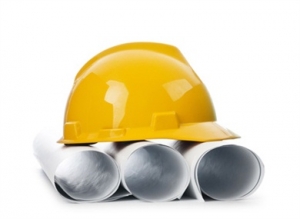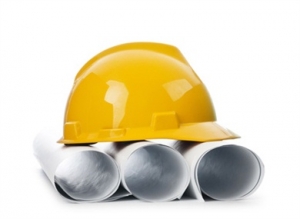Civil engineering powers ahead
While the residential and nonresidential construction market is heading for slow growth this year because of higher interest rates, the civil construction sector is expected to grow 33%.
 Local construction companies stand to benefit from the boom that is expected to carry on until at least 2015, influenced largely by governmental infrastructure spending of R560bn over the next three years.
Local construction companies stand to benefit from the boom that is expected to carry on until at least 2015, influenced largely by governmental infrastructure spending of R560bn over the next three years.
Coupled with this is Eskom’s R1-trillion budget to build power stations, Transnet’s building of railway lines, ports and fuel pipelines, and private sector expansion programmes.
Strong demand and rising commodity prices are also driving expansion in the mining sector, which will benefit the construction sector.
According to Reserve Bank data, the value of construction works reached an estimated R46bn last year, a 32% increase in real terms from R34,7bn in 2006.
South African Federation of Civil Engineering Contractors (Safcec) economist Pierre Blaauw says the estimate is an annualised figure, with the final number due at the end of this month. “Turnover this high was last seen during the construction boom in the 1970s, when the industry recorded a figure breaching the R40bn mark for the first time,” Blaauw says.
“Safcec’s numbers indicate growth between 25% and 30% for the civil engineering industry alone last year.”
He says the good news is that spending on the government's R560bn infrastructure budget started only last year and that this year and next should see further growth for the industry.
“We expect a 13%-16% increase in civil engineering industry turnover this year. It may sound small compared to last year’s record number, but this comes off a higher base,” he says.
Despite challenging macro economic conditions, infrastructure spending is steaming ahead, which bodes well for the industry, which has experienced 80% growth in turnover since 2004.
Blaauw says infrastructure spending is a prerequisite to maintain economic growth.
Blaauw says the biggest challenge the civil engineering industry will face this year will be capacity constraints. Companies will need to increase their capacity by acquiring new capital assets, locating and securing the necessary skills, buying up smaller firms, and expanding their education and training budgets.
Most big construction companies are already at work on projects such as the Gautrain, stadiums, and upgrading of airports and ports.
The likes of Murray & Roberts, Aveng and Group Five are either part of infrastructure development programmes or are bidding with international groups to build power stations and big projects.
Cadiz African Harvest portfolio manager Rajay Ambekar says gross fixed capital formation had peaked at about 30% in 1976 but has since been coming down to the current 15% of gross domestic product (GDP). “The target is 25% of GDP,” Ambekar says.
International construction companies are partnering with local companies that are unable to cope with the load and lack expertise, especially for big projects. “No South African company can build a power station on its own. A lot of civil construction would be done by local companies while technical expertise is brought by international companies,” Ambekar says.
However, he says there is a risk of delays that are outside companies’ control, which could be costly. Blaauw agrees, saying there will be more supply-side constraints than demand-side constraints.
According to Statistics SA, the construction industry showed the biggest jump of all economic sectors in acquiring capital assets from 2005 to 2006, recording a 73% increase. Salaries and wages rose 16,6%. Blaauw says it is likely the industry will have doubled in size between 2004 and next year. .
In 2006 there were four large international construction firms registered with the Construction Industry Development Board, rising to 11 last year.
“We are likely to see a further increase in competition from abroad over the next two to three years, as well as from smaller companies growing into larger firms able to compete for bigger contracts.”
Construction industry faces 'serious' cost pressures beyond 2010 - economist
Cost pressures will continue to impact seriously on the construction industry until at least 2014, the South African Federation of Civil Engineering Contractors said on Friday.
Trein van voorspoed mits dié bedryf wikkel
Ekonome is dit eens dat die Suid-Afrikaanse konstruksie- en ingenieursektor 'n goue tydvak binnegaan mits die bedryf sy uitdagings te bowe kan kom.
Construction 'in a spin over procurement rules tangle'
'Civil engineering sector could cut 5 000-8 000 jobs'
South Africa's civil engineering sector, hit by a slump in revenues as contracts fall, could shed thousands of jobs this year, a key industry official warned yesterday.
Building sector puzzled by R100bn hole'
Construction companies concerned about the absence of a mention of promised infrastructure in the budget
Building and construction 2004
Construction looks forward to year of growth.
THE construction sector is confident that it will again experience good growth this year after a brisk last year that saw the sector expanding by 5,32%.
 Government will spend about R50bn on construction projects over the next three years. This represents real growth of 12% a year for the sector, says Carl Grim, CEO of Aveng, SA's largest construction company. The federation ofcivil engineering contractors is equally upbeat, expecting nominal turn over from civil engineering alone to rise from about R16bn last year to R20bn this year.
Government will spend about R50bn on construction projects over the next three years. This represents real growth of 12% a year for the sector, says Carl Grim, CEO of Aveng, SA's largest construction company. The federation ofcivil engineering contractors is equally upbeat, expecting nominal turn over from civil engineering alone to rise from about R16bn last year to R20bn this year.
Optimism in the sector stems from the expected decline in inflation and
interest rates, together with the recovery of the rand against the major
currencies and other factors.
SA's economy is expected to continue expanding at a rate of 3% a year.
"This growth would in part be brought about by government expenditure as
well as private investment, which will support growth in gross fixed capital
formation," says the federation's Pierre Blaauw.
"Prudent finances have culminated in a declining budget deficit which,
coupled with government's focus on infrastructure development, holds great
promise for the civil industry," Blaauw says.
Federation members were encouraged by increased tender activity in the
latter part of last year. However, Blaauw says underspending due to
institutional capacity problems is still preventing the full benefit of
rising government capital expenditure from trickling down to the industry.
The industry is planning a summit at which some of these issues will be
discussed. Meanwhile, some construction analysts have said that SA's rate of
capital expenditure is still not high enough to catch up on the country's
R170bn social and economic infrastructure backlog.
Civil contractors benefit from infrastructure spending drive.
The drive by the national and provincial governments to step up infrastructure spending, especially on roads, had helped pull the civil engineering industry...
Most Popular
Attacq and Nedbank Corporate and Investment Banking (CIB) Achieves Dual Milestone with SA’s first EDGE and Green Star Certification for Nexus commercial building
Accelerate Property Fund sells Cherry Lane Shopping Centre for R60m
FNB Broker Business Confidence declines in 1st quarter of 2024
Repo rate holds steady for 5th consecutive MPC meeting
Urbanisation drives demand for affordable housing in the Eastern Cape, TUHF

eProperty News is a leading online commercial property marketplace serving the Southern African Investment, Office, Retail and Industrial property and allied sectors.
















